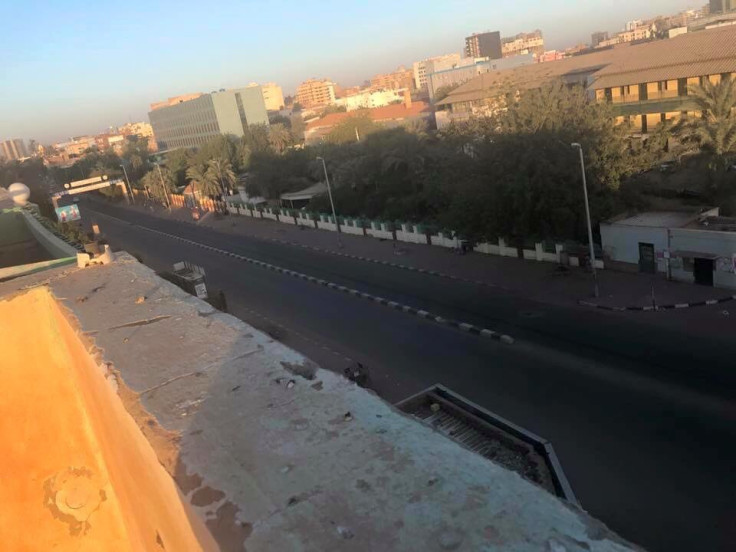Sudan claims three-day strike failed after receiving 'kiss of death' by SPLM-N banned political party
IBTimesUK talks to Sudanese envoy and SPLM-N banned political party on strike against fuel subsidy cuts.

A three-day trike called by opposition parties and activists in Sudan has failed, a Sudanese envoy has told IBTimes UK. The ongoing strike is in protest against fuel subsidy cuts and the rising cost of living in the country.
Opposition groups and activists called for a three-day "civil disobedience" on Sunday (27 November), which marks the start of the working week in the Muslim country.
The strike was prompted by the government's decision to increase petrol and diesel prices by 30% earlier this year. The move led to the rise in the cost of goods including medicines and public transport.
This, coupled with a sharp fall of the Sudanese pound and US economic sanctions, is further weakening the country's economy.
'Kiss of death' by SPLM-N
While reports claimed several streets and squares of the capital Khartoum and the city of Omdurman were deserted due the strike, the government said the opposite.
"The strike has failed,[it was] only marginally observed in some schools. No programme has been declared to replace current government policy," Khalid Al-Mubarak, media attache at the Sudan embassy in London, told IBTimes UK.
"The strike was given the kiss of death when it was endorsed by Mr Yasir Arman of the SPLM-N [Sudan People's Liberation Movement – North] whose movement misgoverns South Sudan," he continued.
SPLM-N was created in 2011 by former members of the SPLM (Sudan People's Liberation Movement), now the ruling party of South Sudan.
SPLM-N is now a banned political party and militant organisation in Sudan. The group, which aims to overthrow the current Sudanese government, is active in South Kordofan and neighbouring Blue Nile regions. SPLM-N is often accused by Khartoum of being involved in the current conflict in South Sudan, something the group strongly denies.
27/11 the beginning of civil disobedience in #Sudan pic.twitter.com/TNl3ocbFfi
— Yassir Arman (@Yassir_Arman) November 27, 2016
Loss of oil fields
Sudan has been progressively reducing fuel subsidy since 2011, when the country lost most of its oil fields due the breakaway of South Sudan.
"The secession of South Sudan has deprived the government of 80% of its income. Some opposition leaders would have preferred the civil war to continue in order to hold on to Southern oil wells. The government made a more responsible choice," Al-Mubarak said.
Cuts on fuel and gas subsidies in 2013 sparked protests which resulted in the death of dozens of people. Activists said at least 200 people were killed, while the government put the death toll at less than 100.
"The lifting of subsidies took place as a result of IMF [International Monetary Fund] recommendations that also led to riots in 2013," Al-Mubarak said. "The opposition can't criticise the IMF because it relies financially and politically on Western (IMF sympathetic ) embassies. Moreover, the Minister of health has responded to legitimate complaints and reversed certain medical policies."
SPLM-N position
Arman, secretary general of the SPLM-N, did not respond to a request for comment.
Both the spokesperson and the chair of SPLM-N office in the US, Aymen Korika and Philip Tutu, told IBTimes UK the strike has been successful. "We did not endorse any of the movement that is negative, we only encourage the resistance among the entire nation to reject and refuse oppression by the government," Korika said.
"People are under intense poverty and the government is using the country's resources to support its regime. We call on the international community to look into the government's actions towards its people and put pressure on the government to not accuse SPLM-N of having ties on South Sudan," he alleged.
"The strike is very successful and people have risen against the government and they will not back down. The government has issued bans on some of the TV channels, that's an indication of the success of the strike."
Korika made the comments hours after Reuters reported Sudan had ordered the closure of Omdurman, and other private TV channels on 27 November.
Tutu also reiterated the SPLM-N has not ties with the South Sudanese government, and accused Khartoum of making such claims "to gain support."
"We have nothing to do with South Sudan. We separated [from SPLM] even before South Sudan gained independence," he said.
© Copyright IBTimes 2025. All rights reserved.




















